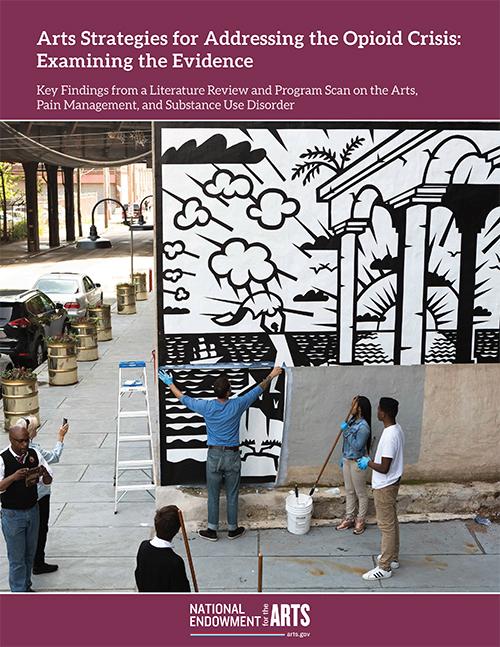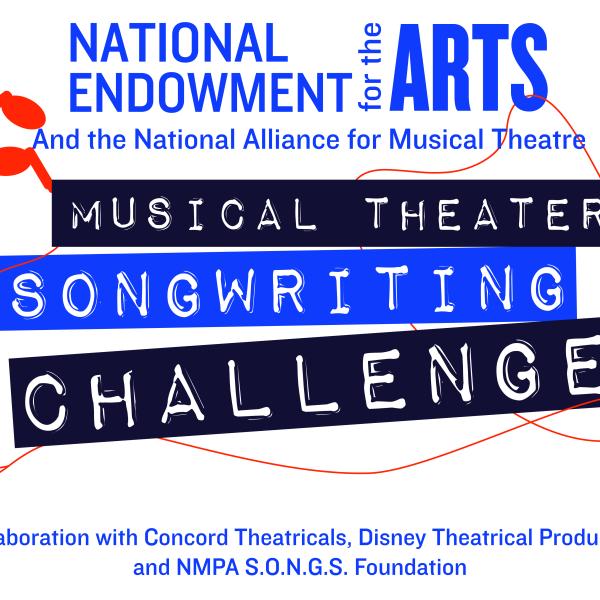New Report from the National Endowment for the Arts Shows the Arts Can Be Significant Tool in Fight Against Opioid Abuse

Washington, DC—In its first-ever report addressing the nation’s opioid crisis, the National Endowment for the Arts finds that incorporating music into treatments for opioid use disorder can contribute significant, positive effects for patients. The report, Arts Strategies for Addressing the Opioid Crisis: Examining the Evidence centers on arts integration in pain management and in the prevention and treatment of substance use disorder (SUD), including opioid use disorder. The report examines studies and programs that demonstrate the arts’ role in improving physical symptoms, psychological health, and personal relationships.
Although this report was commissioned long before COVID-19 erupted, multiple news accounts have suggested an increase in opioid-related deaths due in part to isolation and lack of access to treatment during the pandemic.
“Given the enormous strain on today’s public health system, the lessons in Arts Strategies for Addressing the Opioid Crisis are as timely as they are valuable. I am so proud of the agency’s commitment and innovative approach to this national problem. With an estimated more than 450,000 dying from opioid overdoses in the past 10 years, we need to look at every resource available. The arts provide another tool in the arsenal to help fight this epidemic,” said Mary Anne Carter, chairman of the National Endowment for the Arts.
Arts Strategies for Addressing the Opioid Crisis features a literature review of 116 articles, overviews of eight ongoing programs, and an examination of gaps and opportunities for further research.
Key findings from the literature review:
- Of the 116 articles that were eligible for inclusion in this review, 88 percent featured a music-based intervention.
- Music-listening was shown to reduce post-operative pain, chronic pain, and the need to take pain medication.
- This finding is particularly important because patients often receive opioid therapy to treat an acute problem and then transition into chronic use.
- Music was also shown to improve readiness and motivation for SUD treatment and to reduce cravings.
- When offered in combination with behavioral therapies, medications, and recovery support services, music can improve treatment outcomes for patients with opioid use disorder.
Key findings from the program scan:
- Programs studied for this report are based in Sacramento and San Diego, California; Gainesville and Tampa, Florida; Atlanta, Georgia; Cleveland, Ohio; Albuquerque, New Mexico; and Philadelphia, Pennsylvania. Over 40 other programs are listed in an appendix.
- Among the programs studied, positive outcomes included:
- Preventing or reducing the need for prescribed opioids for those with chronic pain through regimes that include tapering efforts.
- Building psychological protections to prevent opioid use by engaging young people in the arts to develop positive life skills.
- Addressing the stigma of use within the community and promoting recovery.
Key recommendations:
- Future studies should examine the impact of other arts-based interventions (including but not limited to music).
- Researchers should establish core outcomes, metrics, and reporting guidelines.
- Research is needed
- To examine the arts’ role in SUD prevention.
- Specifically, on music- and arts-based programs or interventions for individuals with opioid use disorder.
- For music-based interventions to assess how benefits are maintained over time.
Throughout the report’s development, a group of researchers and practitioners from various fields provided input.
Background:
- In October 2017, the U.S. Department of Health and Human Services declared the opioid crisis a national public health emergency.
- Recent national estimates suggest that the annual cost of pain care exceeds the annual cost for heart disease, cancer, and diabetes combined.
- According to the 2015 National Survey on Drug Use and Health, one in three adults used prescription opioids for pain in the United States.
- A report released by the Substance Abuse and Mental Health Services Administration based on 2018 data stated that approximately 20.3 million people aged 12 or older in the United States had an SUD related to alcohol use disorder or illicit drugs in the past year.
About the National Endowment for the Arts
Established by Congress in 1965, the National Endowment for the Arts is the independent federal agency whose funding and support gives Americans the opportunity to participate in the arts, exercise their imaginations, and develop their creative capacities. Through partnerships with state arts agencies, local leaders, other federal agencies, and the philanthropic sector, the Arts Endowment supports arts learning, affirms and celebrates America’s rich and diverse cultural heritage, and extends its work to promote equal access to the arts in every community across America. Visit arts.gov to learn more.
Contact
Victoria Hutter, hutterv@arts.gov, 202-227-1071




